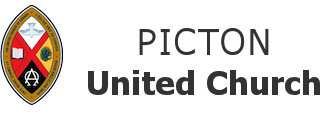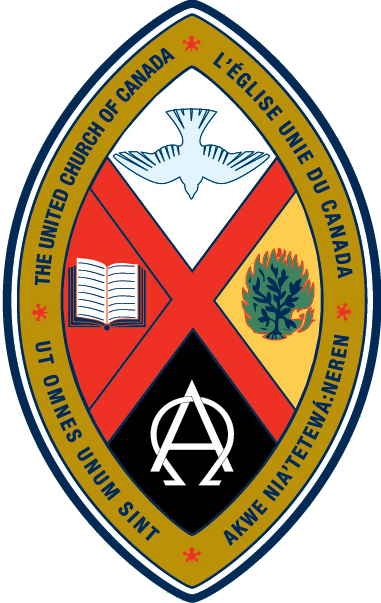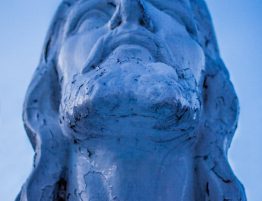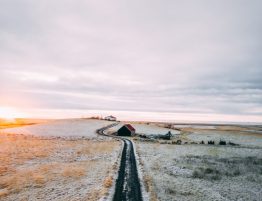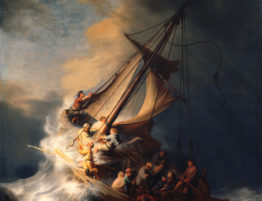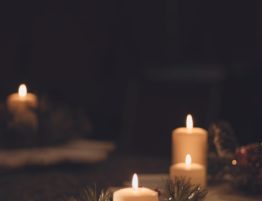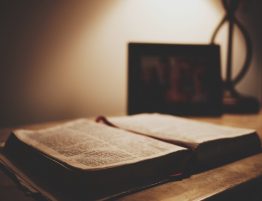
Picton United Church Service March 29, 2020
Invitation to Worship
One: Surely, God is in this place!
All: Kind Creator, help me notice.
One: Surely, God is in this place!
All: Compassionate Saviour, help me savour.
One: Surely, God is in this place!
All: Ever-Present Spirit, help us to celebrate and share Presence here. Empower us that we might make a difference for good in all the places where we live. Amen.
Introit: Come Touch our Hearts
- Come touch our hearts that we may know compassion, from failing embers build a blazing fire; love strong enough to overturn injustice, to see a world more gracious, come touch and bless our hearts.
- Come touch us in the moments we are fragile, and in our weakness your great strength reveal; that we may rise to follow and to serve, steady now our nerve, come touch and bless our wills.
Opening Prayer – As we gather for worship today – Kind Creator, Compassionate Friend, Ever-Present Spirit, – even though we aren’t all together in church – we come seeking renewed awareness that you are with us in our worship service and everywhere, in all places of our living, everyday, always. Open our eyes, surprise us. Touch our hearts. Transform us by your Presence so that we may love the world in Jesus’ name. Amen.
Opening Hymn VU#410 “This Day God Gives Me”
Bible Readings
Ezekiel 37.1-14:
Introduction: The Book of Ezekiel is one of the three major prophetic books in the Hebrew Scriptures which – the others being Isaiah and Jeremiah. The Prophet Ezekiel was writing and speaking to the Jews who were captives during the Babylonian Exile, a little more than 500 years before the common era. This morning we read the story of Ezekiel’s vision of the valley of dry bones. In this and each of our readings this morning, listen for the word of God:
37.1 The hand of the LORD was upon me, and he brought me out by the Spirit of the LORD, and set me down in the middle of a valley; and it was full of bones.
2 And he led me round among them; and there were very many lying in the valley, and they were very dry.
3 And he said to me, “Mortal, can these bones live?” And I answered, “O Lord God, you know.”
4 Then he said to me, “Prophesy to these bones, and say to them: O dry bones, hear the word of the LORD.
5 Thus says the Lord GOD to these bones: I will cause breath to enter you, and you shall live.
6 I will lay sinews on you, and will cause flesh to come upon you, and cover you with skin, and put breath in you, and you shall live; and you shall know that I am the LORD.
7 So I prophesied as I had been commanded; and as I prophesied, suddenly there was a noise, a rattling, and the bones came together, bone to its bone.
8 I looked, and there were sinews on them, and flesh came upon them, and skin covered them; but there was no breath in them.
9 Then the Lord GOD said to me, “Prophesy to the breath, prophesy mortal, and say to the breath: Thus says the Lord GOD: Come from the four winds, O breath, and breathe upon these slain, that they may live.
10 I prophesied as I was commanded, and the breath came into them, and they lived, and stood on their feet, a vast multitude.
11 Then the Lord GOD said to me, “Mortal, these bones are the whole house of Israel. They say, ‘Our bones are dried up, and our hope is lost; we are cut off completely.’
12 Therefore prophesy, and say to them, Thus says the Lord GOD: I am going to open your graves, and bring you up from your graves, O my people; and I will bring you back to the land of Israel.
13 And you shall know that I am the LORD, when I open your graves, and bring you up from your graves, O my people.
14 I will put my spirit within you, and you shall live, and I will place you on your own soil; then you shall know that I, the LORD have spoken and will act, says the LORD.”
Romans 8.11
The Letter of St. Paul to the Romans, the sixth book in our New Testament. There is general agreement among Biblical scholars that this longest of Paul’s letters was written in the decade of the mid-fifties of the first century of the Common Era – while Paul was staying in Corinth – a seaport in western Greece. This means that it was written before any of the four gospels. The Letter to the Romans has been very important in our Protestant Tradition. Martin Luther came to understand that God’s Love was for him personally as he read this Letter. Our Methodist forbearer John Wesley had an experience of grace while he was reading Luther’s Commentary on Romans – when his heart was warmed by the truth of the gospel – the good news of God’s Love in Christ. We read just one verse of Chapter 8 this morning:
8.11 Since the Spirit of God who raised Jesus from the dead dwells in you, God who raised Christ from the dead will give life to your mortal bodies also through the Holy Spirit that dwells in you.
The Gospel of John 11
The Gospel of John was written around the turn of the first century of the Common Era. This Gospel is closely related in its style, to the Letters of John. Along with the Book of Revelation it is part of the body of writing that came out of the community of faith that had grown up around the Apostle John – the Galilean Fisherman, brother of James and son of Zebedee. The Gospel came into being at the time when the infant church was emerging from its roots in the synagogue. It is important to note that virtually all the characters whose lives are spoken of in this Gospel, were Jews. When the author speaks of “the Jews” he is referring to the religious authorities who were, at times, in conflict with Jesus. We read this morning a portion of the story of the illness, death and rising of Jesus’ friend Lazarus. We will be reading from the paraphrase of this story offered by Rev. Dr. Eugene Petersen of Vancouver’s Regent College.
Part of Chapter 11: A man was sick, Lazarus of Bethany, the town of Mary and her sister Martha. This was the same Mary who massaged the Lord’s feet with aromatic oils and then wiped them with her hair. It was her brother Lazarus who was sick. So, the sisters sent word to Jesus, “Master, the one you love so very much is sick.”
When Jesus got the message, he said, “This sickness is not fatal. It will become an occasion to show God’s glory by glorifying God’s Son.”
Jesus loved Martha and he sister, Mary, and Lazarus, but oddly, when he heard that Lazarus was sick, he stayed on where he was for two more days. After the two days, he said to his disciples, “Let’s go back to Judea.”
The disciples replied, “Rabbi, you can’t do that. The religious authorities are out to kill you, and you’re going back?”
Jesus announced, “Our friend Lazarus has fallen asleep. I’m going to wake him up.”
The disciples replied: “Master, if he’s gone to sleep, he’ll get a good rest and wake up feeling fine.”
Jesus was talking about death, while his disciples thought he was talking about taking a nap.
Then Jesus became explicit: “Lazarus died. And I am glad for your sakes that I wasn’t there. You’re about to be given new grounds for believing. Now let’s go to him.”
That’s when Thomas, the one called the Twin, said to his companions, “Come along. We might as well die with Jesus.” (Because they were still afraid of the intention of the religious authorities.)
When Jesus finally got there, he found Lazarus already four days dead. Bethany was near Jerusalem, only a couple of miles away, and many of the neighbours and friends were visiting Martha and Mary, sympathizing with them over their brother.
Martha heard that Jesus was arriving and went out to meet him. Mary remained in the house.
Martha said, “Master, if you’d been here, my brother wouldn’t have died. Even now, I know that whatever you ask, God will give to you.”
Jesus said, “Your brother will be raised up.”
Martha replied, “I know that he will be raised up in the resurrection at the end of time.”
You don’t have to wait for the End, I am, right now, Resurrection and Life. The one who believes in me, even though he or she dies, will live. And everyone who lives believing in me does not ultimately die at all. Do you believe this?”
“Yes, Master.” said Martha, “All along I have believed that you are the Messiah, the Son of God who comes into the world.”
After saying this, she went to her sister Mary and whispered to her, “The Teacher is here and is asking for you.”
The moment she heard that, Mary got up quickly and ran out to him. When her sympathizing neighbours and friends saw Mary go out, they followed her, thinking she was on her way to the tomb to weep there. Mary came to where Jesus was waiting and fell at his feet, saying, “Master, if you had been here, my brother would not have died.”
When Jesus saw her sobbing and the neighbours and friends with her sobbing, he was deeply moved. He said, “Where did you put him?”
“Master, come and see,” they said. Now Jesus wept. The people who saw it said, “Look how deeply Jesus loved him.”
Others among them said, “Well, if he loved him so much, why didn’t he do something to keep him from dying? After all, he opened the eyes of a blind man.”
When they came to the tomb, which was a simple cave in the hillside with a slab of stone laid against it, Jesus said, “Remove the stone.”
The sister of the dead man, Martha, said: “Master, by this time there’s an odour. He’s been dead four days!”
Jesus looked her in the eye. “Didn’t I tell you that if you believed, you would see the glory of God?”
Then, to the others, he said: “Go ahead, take away the stone.”
They removed the stone. Jesus raise his eyes to heaven and prayed, “Holy One, Abba, I’m grateful that you have listened to me. I know you always do listen, but on account of this crowd standing here I’ve spoken so that they might believe that you sent me.”
Then Jesus shouted, “Lazarus, come out!” And he came out, wrapped from head to toe, and with a covering over his face.
Jesus told them, “Unwrap him and let him go.”
Many of those present believed because of this sign – but others reported back to the religious authorities who were then more determined than ever to put a stop of Jesus.
Responsive Reading, Psalm 130, VU#853
One: Out of the depths have I called to you. O God, hear my cry!
All: Let your ears be attentive to my plea for mercy.
One: If you should keep account of what is done amiss, O God, who could stand?
All: But there is forgiveness with you, therefor we will honour you.
Refrain: Out of the depths I cry to you; my hope is in your promise true.
One: I wait for you, God; my soul waits, and your word is my hope.
All: My soul waits for God more than the watchers for morning, more than watchers for morning.
One: O My People, wait in hope, for with God there is love unfailing.
All: With God is great power to redeem, to redeem you, O My People, from all your sin.
Refrain: Out of the depths I cry to you, my hope is in your promise true.
Prayer: Thank you God for your Holy Spirit, at work in us and among us. Help us, by the Spirit, to understand the meaning of these words from the Bible, and to put their truth into action as we follow Jesus in the Way. Amen.
Sermon: Reflection on the Texts for Today
I want to say at the outset this morning that, although I take the Bible seriously – as an inspired collection of writings about our human relationship with God – known to us as Kind Creator, Compassionate Friend, and Ever-Present Spirit – I am not a Biblical Literalist. Nor do I believe that it is necessary or wise to make the Bible into what some have called “a paper Pope” – infallible and inerrant – as though every word contained in the Bible was dictated to the writers from the lips of the Holy One. A literal reading of the Bible robs it of much of its power. I believe that the truth of the Bible is in its rich metaphors. For that reason, even though we repeat the same readings from the Bible every three years in the Revised Common Lectionary – there are always new insights to be gained as we read it in the context in which we live – a context that is constantly changing.
Ezekiel’s vision of the valley of dry bones, for me, is a metaphor about God’s purpose to restore and renew – to redeem – the whole creation. When everything seemed hopeless to the Jews who were in Babylon – a couple of generations after their people were taken into exile – a couple of generations after the sacking of Jerusalem and the destruction of Solomon’s Temple by the Babylonian Empire – the word of God came to Ezekiel in his visions. Even in a valley of sun-bleached bones, there was the possibility of life’s restoration. The promise of God was to bring the people back to their own land. In the broadest sense it seems to me that we can read here God’s intention – God’s work – to restore the original blessedness of Eden. God is at work to overcome the evils that exist in our world, to heal the brokenness and restore the wholeness of our world, and to bring us all back to the place where everything could be described as “very good” – as God, the Creator, described it in the creation story in the very first chapter of the Bible.
We know, we experience daily, the reality of the brokenness of creation.
Our United Church of Canada “Song of Faith” puts it this way:
We are all touched by this brokenness: the rise of selfish individualism that erodes human solidarity; the concentration of wealth and power without regard for the needs of all; the toxins of religious and ethnic bigotry; the degradation of the blessedness of human bodies and human passions through sexual exploitation; the delusion of unchecked progress and limitless growth that threatens our home, the earth; the covert despair that lulls many into numb complicity with empires and systems of domination. We sing lament and repentance.
Yet evil does not – cannot – undermine or overcome the love of God. God forgives, and calls all of us to confess our fears and failings with honesty and humility. God reconciles, and calls us to repent the part we have played in damaging our world, ourselves, and each other. God transforms and calls us to protect the vulnerable, to pray for deliverance from evil, to work with God for the healing of the world, that all might have abundant life.
We sing of grace.
In his Letter to the Church at Rome, St. Paul emphasizes God’s will to save. In the verse that we read this morning, from the eighth chapter, the Apostle affirms that God’s Spirit lives in us and that God gives us the gift of life – as Jesus said, “in all its fullness.”
Then we come to the story we read from The Gospel of John – about the raising of Lazarus.
This is not the only story in the gospels of Jesus raising the dead. There are also other examples in the literature of Jesus’ day, stories of healers who travelled through the countryside and were known to be able to raise the dead.
I don’t know exactly what occurred there in Bethany, outside Jerusalem, two thousand years ago. It seems to me that this story is a reflection of the Easter story. Lazarus’ life was apparently restored – but we all know that not one of us is going to get out of this world alive. For Lazarus too, one day he would breath his last and his body would be laid to rest with his ancestors. We are all mortal – we are dust and to dust we shall return. At the same time, we affirm that in life and death and life beyond death God is with us.
This story is rich in courage, pathos and compassion. Jesus is delayed in responding to the message of the need of his dear friends Mary and Martha and Lazarus.
We read that his disciples were afraid for Jesus. The powers that be were determined to kill him. Although they try to talk him out of going, Thomas finally invites them all with the words:
“Let us also go with him, that we might also die with him.”
It took courage for Jesus and his disciples to make this journey from Galilee to Jerusalem.
As Jesus and the disciples draw near to Bethany, Martha comes out to meet them. Martha says to Jesus: “If you had been here, my brother would not have died.” This is a cry from the heart that is repeated by Mary when she, in turn, comes out to meet Jesus. All of us who have experienced the death of a loved one can find ourselves in this story. This is an “If only” statement. It is our response to the randomness of life. If only they had left home a little later. If only they had stopped for a coffee at Tim’s. Then they would not have been at that exact spot when the car came across the centre line.
Marth and Mary were overwhelmed by grief. We feel the pathos in their words.
The author tells us that Jesus was deeply moved when he saw their tears and the tears of their friends and neighbours. Jesus’ heart went out to them and he wept. Jesus, whose passion was compassion, embraced his friends in their hour of grief. We know this as empathy and we have all experienced the empathy of family and friends – and have extended empathy to others – its part of being human.
This story is for us a graphic illustration of God’s Presence with us – even, and especially, in our darkest hours.
We know that thousands of people have died and are dying from COVID-19. In China. In Italy. In Iran. In Britain. In the United States and here in Canada (all over the world). Each death involves the real grief of a family with friends and neighbours.
We are all seeking to do our part of slow the spread of the virus – and to pray for the wellbeing of our world-wide human community. We are isolating at home and exercising great care, as we wait for those who seek to develop a vaccine. This will be a long- term experience of waiting. Although President Trump is sure that everything will be back to normal by Easter – reality will be quite different.
We are assured that God is with us as we walk this dark and difficult road. Not even COVID-19 can separate us from God’s love. As we see Jesus’ compassion and empathy in this gospel story – we see the face of God. We affirm that God’s love is unfailing. God’s call to us is to do our part to be the hands and feet of Christ for our families, our neighbours, our community, our human family.
God help and empower us for this mission and ministry – loving the world in Jesus’ name. Amen.
Hymn of Reflection: VU#266 “Amazing Grace”
- Amazing grace how sweet the sound, that saved a wretch like me. I once was lost, but now am found; was blind but now I see.
- ‘Twas grace that taught my heart to fear, and grace my fears relieved. How precious did that grace appear, the hour I first believed.
- Through many dangers, toils and snares, we have already come. Tis grace that brought us safe thus far, and grace will lead us home.
- The Lord has promised good to me, this word my hope secures. God will my shield and portion be, as long as life endures.
- When we’ve been there, ten thousand years, bright shining as the sun; we’ve no less days to sing God’s praise, than when we’d first begun.
We Offer Our Gifts
Although we are not together physically, and therefor can’t give our offering on the offering plate this morning – the life and ministry of the church continues. Some of you give your weekly tithes and offerings by PAR (Pre-Authorized Remittance), for this your church is grateful. If you are one of those who gives your offering by cash or cheque each week, for your congregation. You can continue to do so by mailing in your contribution by cheque made out to South Bay United Church or Picton United Church, as the case may be. You can also make an online donation to the church, just click on the DONATE button on our main page and follow the instructions.
May God bless you as your offerings are a blessing to the life and work of your church.
Hymn & Prayer of Dedication
We give thee but thine own, whate’er that gift may be. All that we have is thine alone, a trust O Lord from thee. Amen.
Prayers of Thanksgiving & Concern
(This Prayer is from The Right Rev. Richard Bott, Moderator of our United Church of Canada – A Prayer During Times of COVID-19)
In this time of COVID-19, we pray: When we aren’t sure, God, help us be calm; when information comes from all sides, correct and not, help us to discern; when fear makes it hard to breathe, and anxiety seems to be the order of the day, slow us down, God; help us to reach out our hearts, when we can’t touch with our hands; help us to be socially connected, when we have to be socially distant; help us to love as perfectly as we can, knowing that “perfect love casts out fear.”
For the doctors, we pray,
For the nurses, we pray,
For the respiratory technicians and all hospital staff, we pray,
For the researchers and theorists, the epidemiologists and investigators, for those who are sick and those who are grieving, we pray,
For all who are affected, all around the world – we pray for safety, for health, for wholeness.
May we feed the hungry, give drink to the thirsty, provide clothing for those without adequate cover, and homes for those without a safe lodging; may we walk with those who feel they are alone, and may we do all that we can to heal the sick – despite the pandemic, despite the fear.
Help us, O God, that we might help one another.
In the love of the Creator, in the name of the Healer, in the life of the Holy Spirit that is in all and with all, we pray.
May it be so.
Amen.
Parting Hymn VU#352 “Lord of the Dance”
- I danced in the morning when the world was begun, and I danced in the moon and the stars and the sun, and I came from heaven and I danced on the earth; at Bethlehem I had my birth.
Refrain: Dance then wherever you may be! I am the Lord of the Dance said he. I’ll lead you all, wherever you may be, and I’ll lead you all in the dance said he.
- I danced for the scribe and the pharisee, but they would not dance and they wouldn’t follow me; I danced for the fishermen, for James and John, they came with me and the dance went on.
Refrain:
- I danced on the Sabbath and I cured the lame; the holy people said it was a shame; they whipped and they stripped and they hung me high, and left me there on the cross to die.
Refrain:
- I danced on a Friday when the sky turned black; its hard to dance with the devil on your back; they buried my body and they thought I’d gone, but I am the dance and I still go on.
Refrain:
- They cut me down and I leap up high; I am the life that will never, never die. I’ll live in you if you’ll live in me; I am the Lord of the dance said he.
Refrain:
Commissioning & Blessing
In your homes this week may you feel the Presence of God with you – empowering you to take courage and to live with compassion, reaching out with empathy to family, friend, neighbours and the community as we follow Jesus in the Way.
Remember that Jesus said: “You are the light of the world.” Take the Light of Christ with you into your daily living and be open to Christ’s presence in the life of the world.
May the Lord bless you and keep you. May the Lord make his face to shine upon you and be gracious unto you. May the Lord lift up his countenance upon you and give you peace. Amen.
Sung Response MV#154 vs.4 & 5 “Deep in Our Hearts”
Deep in our hearts there is a common longing; deep in our hearts there is a common theme; deep in our hearts there is a common current, flowing to freedom like a stream.
Deep in our hearts there is a common vision; deep in our hearts there is a common song; deep in our hearts there is a common story, telling Creation that we are one.
All illustrations, Photos, links used on this website are property of their respective owners
